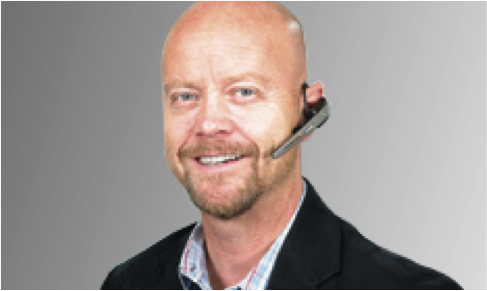


The whole ensemble was like that, but Marsden really was always conscious of that. He cared so much about Ronald, and he was always making sure that Ronald was OK. Marsden is so funny, talented and willing to make fun of himself - willing to sit for hours at a time in a court room with nothing happening in order to buy the reality. It really upset Ronald, so much so that Marsden leaves to buy a second cake to make amends. One scene that really touched me was when James Marsden destroys Ross’ birthday cake. His mental health always came first we had check-ins with an on-site psychologist that he thought everyone in the documentary was having. Regardless of all of that, finding out that the past three and a half weeks of your life had been fake? That’s potentially scary. We never wanted to put him in a bad light or make fun of him.

Ronald is an amazing guy, and we all cared deeply about him. Everyone for real fell in love with Ronald during it we say this in episode eight, but the actors still keep in touch. I can only imagine how tense it was before you revealed it all to Ronald. I was on the edge of my seat when I watched the finale. I say this a lot, but Ronald Gladden restored my faith in humanity. I mean, him showing Todd A Bug’s Life or taking him on a makeover - that wasn’t scripted, that was all Ronald. And Ronald just went above and beyond - he exceeded my expectations. Alexis interviewed more than 2,500 people, and she just has a way of asking questions and getting to the heart of someone. We always intended this to be a hero’s journey we never wanted to make fun of someone or embarrass them. She needed to find someone who could do this for three and a half weeks and believe it, and he also had to be a good guy. Alexis Sampietro - she’s fucking amazing. And Susie found such incredibly talented people - I mean, that’s a tall order, to find people who are that talented at improv, can hold it together for three and a half weeks and happen to be not famous enough that they’re immediately recognizable. Once the audition process started, I was like, “I want everyone who wants to audition to audition, because I want as many of you guys to be on the show.” I got so lucky because it’s such an abundance of talent. We hired writers based on their scripts, but I did make sure that most of them were also open to being performers. Susie did the most, and her nomination is so well deserved. That was a big part of why we were able to be successful.ĭid you work with casting director Susie Farris in finding writers who could also act on the show? With the exception of two writers, everyone in the writers room was a character on the show. The intention was that they wouldn’t be just in the room, but they would be there throughout the whole production. One of the first things I did was fill the writers room with as many potential performers. We’d be working with a “real person,” and we’d have to react and adjust every day based on his decisions. This was going to be a fluid, constantly evolving thing - we wouldn’t have scripts to follow.

We had a 10-week writers room, but if we started production, I knew it wasn’t going to work.
Mike todd crazyer faith how to#
Nicholas Hatton, who has worked on the Borat movies, is a master at doing this kind of stuff and knows how to make everything work logistically. There was something about that fear of failure that ignited something in myself. It sounded so cool, but I didn’t know if I could pull it off. When Todd Schulman, David Bernad, Lee Eisenberg and Gene Stupnitsky came to me with this idea, I was terrified. This is such a unique show, so I have to ask: What does a showrunner’s job on something like this look like?


 0 kommentar(er)
0 kommentar(er)
